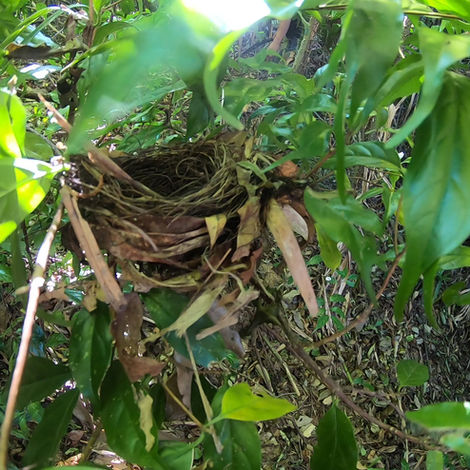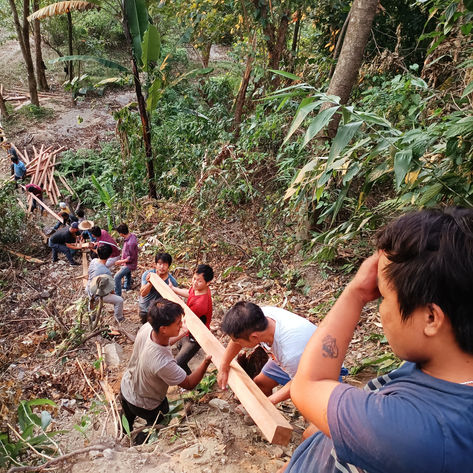
Elopa Etugu Community Eco- Cultural Preserve

Elopa Etugu Community Eco- Cultural Preserve

Elopa Etugu Community Eco- Cultural Preserve
What is a CCA?
A Community Conserved Area (CCA) is an area conserved by communities for cultural, religious, livelihood, or political purposes by customary and other effective means. CCAs differ from wildlife sanctuaries and national parks as local communities take the lead in protecting their lands, while also using it for non-destructive spiritual and livelihood purposes. While CCAs remain a policy challenge in India’s existing legal framework for forest and wildlife conservation, they are a rapidly rising global phenomenon with thousands of communities across the world having declared CCAs in their traditional lands to protect nature, culture, and livelihoods from external and internal threats, particularly large-scale infrastructure development. Arunachal’s neighbouring state, Nagaland, has close to 700 CCAs, where village councils have legal rights over forest land. EECEP has been declared following the customary practices framework which is an accepted form of local governance in Arunachal Pradesh, and which is recognised by the Convention on Biological Diversity, and the United Nation’s International Union Conservation of Nature’s (IUCN), to which India is an official signatory. Within India, the Forest Rights Act (FRA 2006) recognises forest dwelling communities’ rights over their customary lands and empowers them to protect their land by gaining legal titles. However, the implementation of FRA in Arunachal Pradesh remains a challenge.
What is EECEP?
EECEP is the first locally-led CCA in East-Central Arunachal, and second only to the CCAs of Tawang and West Kameng. Importantly, EECEP is the first community-conserved wet tropical grassland in all of India. On 3rd June 2020, the original four clans of a community forest in the foothills of Dibang passed a resolution to declare their ancestral lands as a Community Conserved Area(CCA). EECEP contributes to India’s commitments in the Glasgow COP26, the Paris Climate Accord, and the Convention on Biological Diversity. EECEP is managed by a Management Committee composed of representatives of all four Idu Mishmi clans. The Management Committee’s mandate is not only to protect wildlife and restore degraded habitat through a management plan, but also to create sustainable income for villagers through community-led research and sustainable tourism. EECEP’s objectives also include strengthening inter-generational knowledge transfer and promotion of traditional cultural norms, undertaking programs to improve the socio-economic well-being and health of the clan’s members, and preventing large-scale infrastructure development without free, prior, and informed consent from the community. EECEP’s Management Committee will seek advice from a Local Advisory Panel composed of Panchayat Members, District Administration, Forest Department, and community leaders, and a Technical Advisory Panel of world-renowned experts who have voluntarily offered support to the novel initiative. After the declaration, there is now a complete ban on fishing using generators, explosives, poisons, hunting, and commercial extraction and sale of timber. The land will remain with the community and no single individual may sell, occupy, or reserve land in its name. Traditional fishing and small-scale collection of NTPF are allowed for the community but not outsiders. The declaration also said, “Through restoration, protection, and measured use, we hope to lay the foundation for a sustainable future for our coming generations… A future where we are once again part of nature, not superior to it. A future where the economy is linked to generation, not destruction”.
To keep the ownership of the ancestral land within the community, in accordance with longstanding customary norms.
01
To conserve and manage Elopa-Etugu’s biodiversity following traditional knowledge and with input from Western scientific knowledge.
02
To continue the use of Elopa-Etugu for non-commercial, small-scale, traditional purposes.
03
To prevent the construction of any infrastructure and permanent structures without written Free, Prior and Informed consent of the community.
04
To generate sustainable livelihoods for community members through eco-tourism and sustainable use of EECEP.
05
To promote interdisciplinary research on social and ecological aspects of the area, including sustainable rural livelihood development.
06
To restore degraded forest and grasslands in parts of the EECEP.
07
To strengthen inter-generational socio-ecological knowledge transfer and promotion of traditional cultural norms.
08
To undertake programs aimed at improving the well-being, sanitation, and health of the clan’s members.











